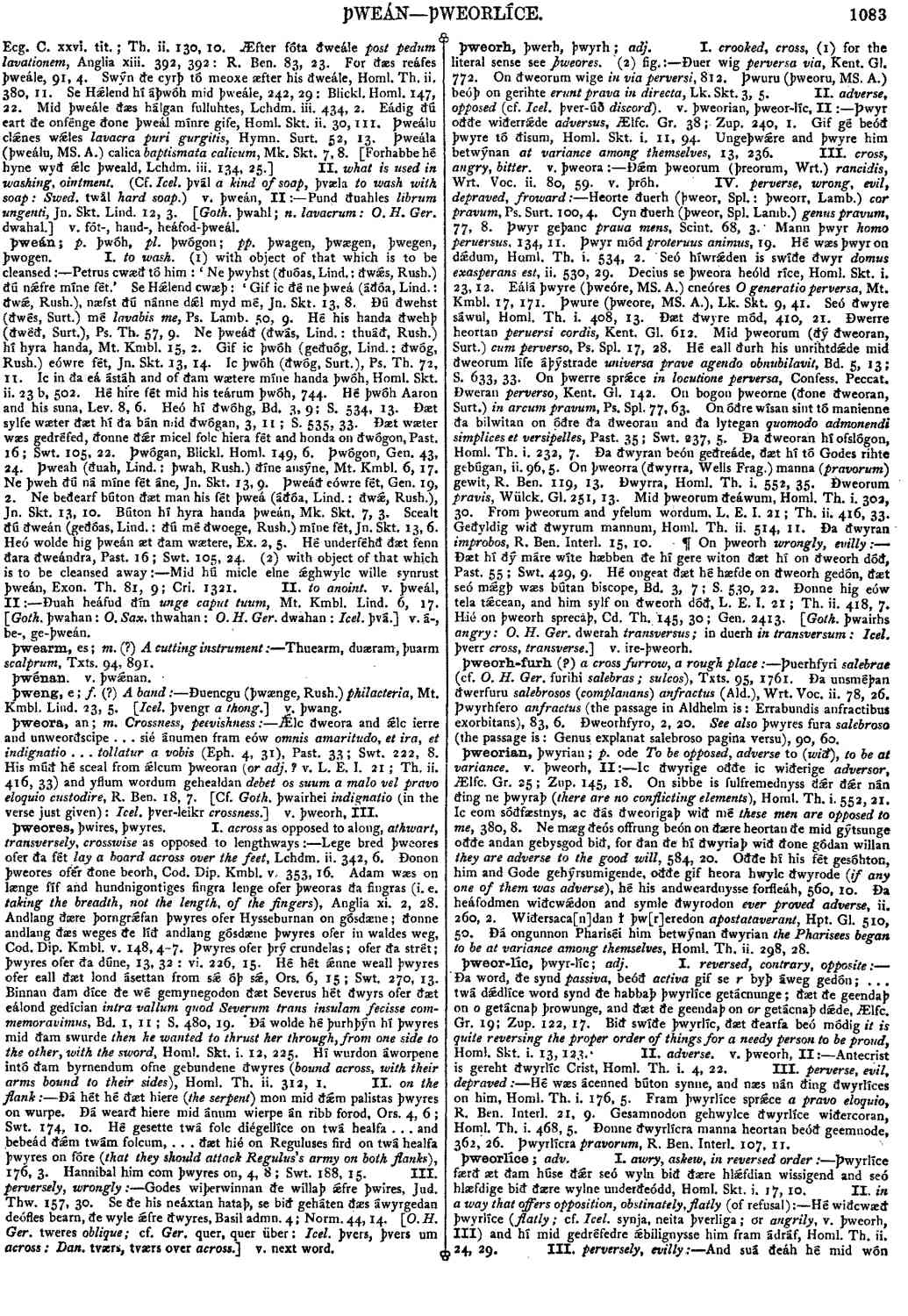þweorian
- verb [ weak ]
-
Ic ðwyrige oððe ic wiðerige
adversor,
- Ælfc. Gr. 25 ;
- Zup. 145, 18.
-
On sibbe is fulfremednyss ðǽr ðǽr nán ðing ne þwyraþ (
there are no conflicting elements
),- Homl. Th. i. 552, 21.
-
Ic eom sóðfæstnys, ac ðás ðweorigaþ wið mé
these men are opposed to me,
- 380, 8.
-
Ne mæg ðeós offrung beón on ðære heortan ðe mid gýtsunge oððe andan gebysgod bið, for ðan ðe hí ðwyriaþ wið ðone gódan willan
they are adverse to the good will,
- 584, 20.
-
Oððe hí his fét gesóhton, him and Gode gehýrsumigende, oððe gif heora hwylc ðwyrode (
if any one of them was adverse
), hé his andweardnysse forfleáh,- 560, 10.
-
Ða heáfodmen wiðcwǽdon and symle ðwyrodon
ever proved adverse,
- ii. 260, 2.
-
Wiðersaca[n]dan ł þw[r]eredon
apostataverant,
- Hpt. Gl. 510, 50.
-
Ðá ongunnon Phariséi him betwýnan ðwyrian
the Pharisees began to be at variance among themselves,
- Homl. Th. ii. 298, 28.
Bosworth, Joseph. “þweorian.” In An Anglo-Saxon Dictionary Online, edited by Thomas Northcote Toller, Christ Sean, and Ondřej Tichy. Prague: Faculty of Arts, Charles University, 2014. https://bosworthtoller.com/32373.
Checked: 1